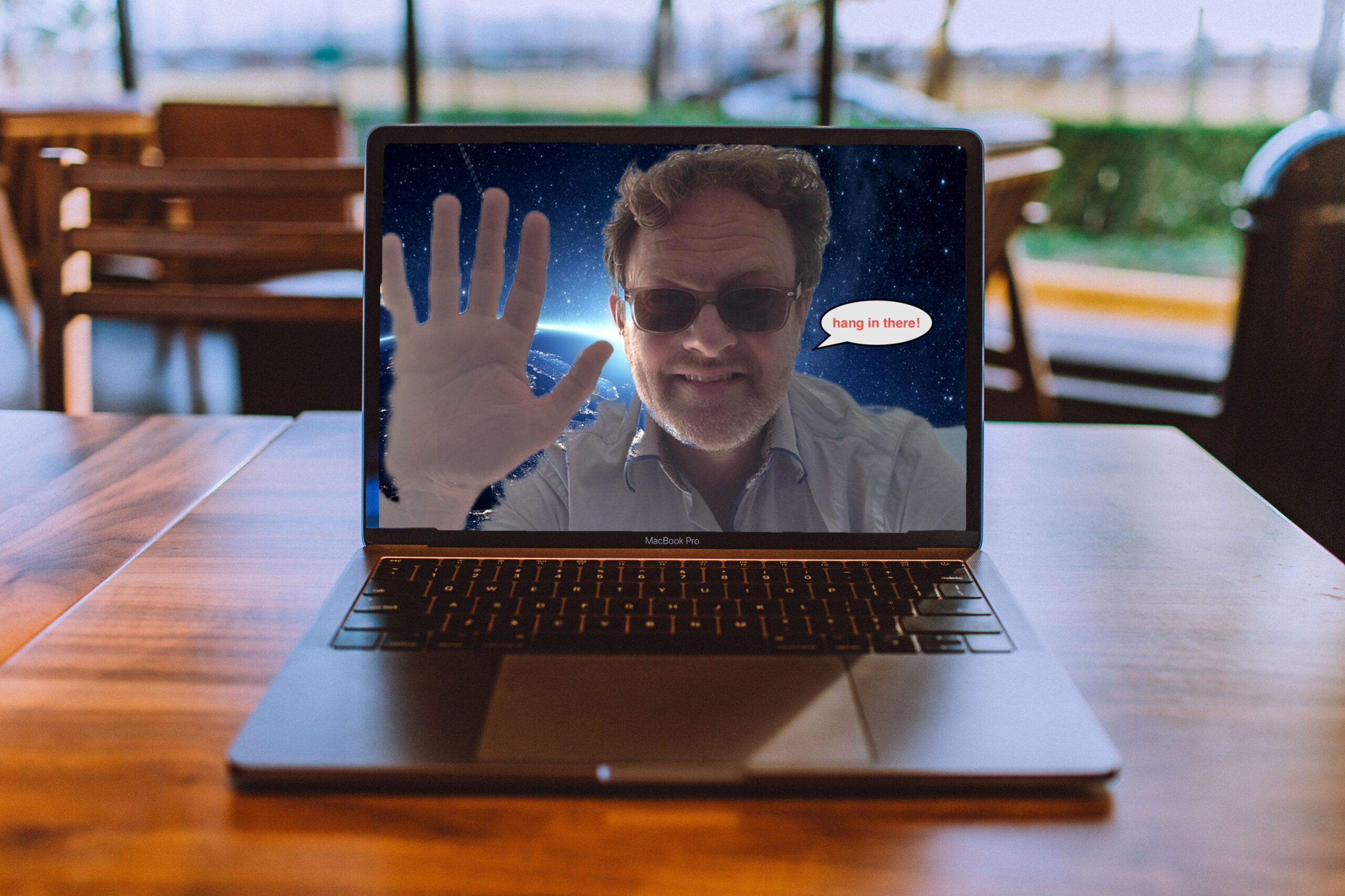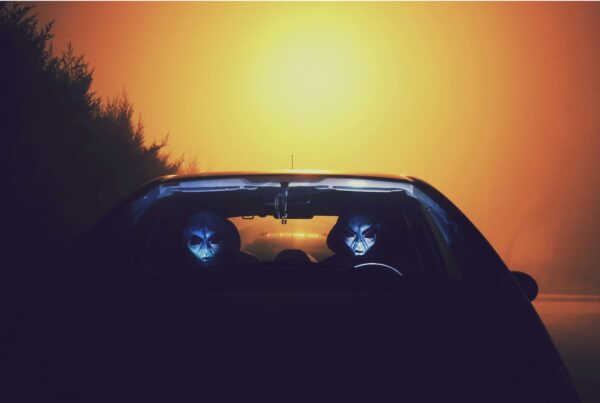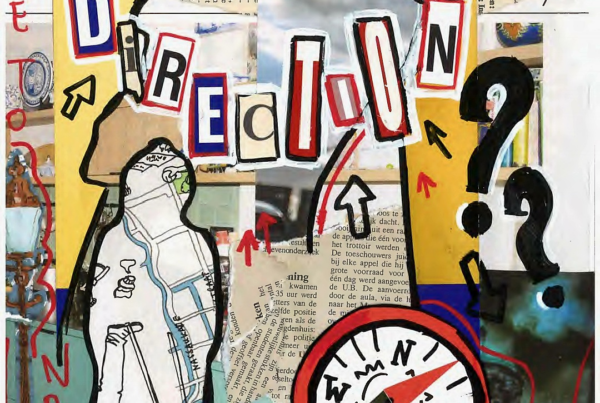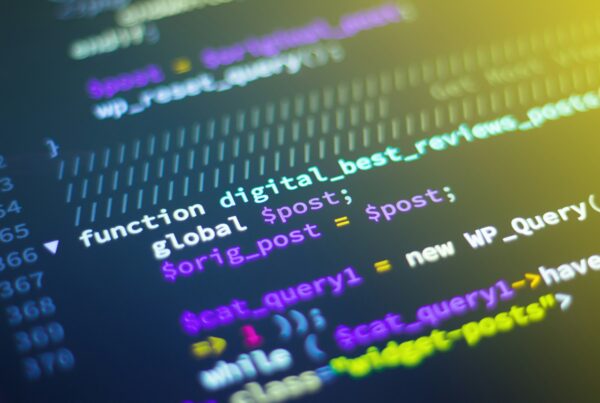
Reinout Wiers, a former Spiegeloog writer from his student years, is a professor of Developmental Psychopathology and heads the Addiction Development and Psychopathology (ADAPT) Lab. His research primarily focuses on implicit cognition and addiction. He is also a principal investigator for the UvA RPA Yield project and is one of the senior editors of the leading substance abuse journal, Addiction.

How have the weeks since the UvA closed been for you?
‘The first two weeks were especially challenging. Incidentally, in the weeks before the lockdown, we wanted to insulate a part of the house. We then found woodworms and fungus in the beams of the house! If nothing was done about it, the house would have collapsed. Thus, there was an emergency repair of the house. It was quite a nightmare — with the noise, electricity and internet problems. Additionally, with three kids who are also following lessons, there was also a battle for the sparse internet! Anyway, after those two weeks, the situation was much better.’
On working from home and current projects…
‘The initial two weeks weren’t the best productivity-wise. However, work has been smoother after that. Currently, I still work as I usually do in a normal week. The mornings are quiet, so I like writing then or reading and reviewing papers. Mostly, the afternoons are reserved for meetings. Zoom-ing a lot does get tiring and then calls for downtime! If I’ve spent a lot of time on Zoom calls, I need to nip out for a walk or a bike ride in the evening.
This lockdown has come in the way of research and projects. It’s especially a major challenge for longitudinal studies or PhD students who have just started their projects and gotten approvals from the required committees. I did get lucky with one of our projects though. We just set up a trial for a smoking cessation training project, which runs via WhatsApp. Since it is online and thus, unaffected by corona, it is still going on.
Given the circumstances though, there are definitely issues but some opportunities come up as well. I am involved in the UvA care Project where we are assessing how students are doing right now and how they are being affected by the corona situation. Based on a Mental Health questionnaire we sent out to students, we will contact those who score above a certain threshold of distress and can offer them an E-health intervention.’
On realisations or changes regarding education…
‘Well, for students, this situation peels off the social aspect of studying. This allows them to understand whether it truly is the contents of the study that they enjoy and find motivating or not. With teaching, we are forced to more actively use other means and I imagine it will benefit future teaching. I do see a certain advantage with pre-recorded lectures though. I recently used a lecture for a couple of classes since I had it ready. It consequently allows us to use the face-to-face conference time more actively, to discuss things from the lecture. This would work best for smaller groups though, in order to facilitate more active interaction. However, I also missed having an audience. I recently recorded a lecture in a studio and it was a bit strange giving the lecture to the camera guy who obviously was not interested in what I was saying! While I miss the possibility of interaction, this is a new opportunity with regard to teaching. Lastly, with regard to international collaborations, it mostly works online anyway. I have been working with others internationally for a while now and it does work well. However, it’s a bit difficult starting and setting it up online. After you meet in person once, it is much easier.’
One thing you miss about going to university?
‘This is usually the time I teach individual students, so it would probably be the discussions with small groups and colleagues. They’re very direct and interactive!’

How have the weeks since the UvA closed been for you?
‘The first two weeks were especially challenging. Incidentally, in the weeks before the lockdown, we wanted to insulate a part of the house. We then found woodworms and fungus in the beams of the house! If nothing was done about it, the house would have collapsed. Thus, there was an emergency repair of the house. It was quite a nightmare — with the noise, electricity and internet problems. Additionally, with three kids who are also following lessons, there was also a battle for the sparse internet! Anyway, after those two weeks, the situation was much better.’
On working from home and current projects…
‘The initial two weeks weren’t the best productivity-wise. However, work has been smoother after that. Currently, I still work as I usually do in a normal week. The mornings are quiet, so I like writing then or reading and reviewing papers. Mostly, the afternoons are reserved for meetings. Zoom-ing a lot does get tiring and then calls for downtime! If I’ve spent a lot of time on Zoom calls, I need to nip out for a walk or a bike ride in the evening.
This lockdown has come in the way of research and projects. It’s especially a major challenge for longitudinal studies or PhD students who have just started their projects and gotten approvals from the required committees. I did get lucky with one of our projects though. We just set up a trial for a smoking cessation training project, which runs via WhatsApp. Since it is online and thus, unaffected by corona, it is still going on.
Given the circumstances though, there are definitely issues but some opportunities come up as well. I am involved in the UvA care Project where we are assessing how students are doing right now and how they are being affected by the corona situation. Based on a Mental Health questionnaire we sent out to students, we will contact those who score above a certain threshold of distress and can offer them an E-health intervention.’
On realisations or changes regarding education…
‘Well, for students, this situation peels off the social aspect of studying. This allows them to understand whether it truly is the contents of the study that they enjoy and find motivating or not. With teaching, we are forced to more actively use other means and I imagine it will benefit future teaching. I do see a certain advantage with pre-recorded lectures though. I recently used a lecture for a couple of classes since I had it ready. It consequently allows us to use the face-to-face conference time more actively, to discuss things from the lecture. This would work best for smaller groups though, in order to facilitate more active interaction. However, I also missed having an audience. I recently recorded a lecture in a studio and it was a bit strange giving the lecture to the camera guy who obviously was not interested in what I was saying! While I miss the possibility of interaction, this is a new opportunity with regard to teaching. Lastly, with regard to international collaborations, it mostly works online anyway. I have been working with others internationally for a while now and it does work well. However, it’s a bit difficult starting and setting it up online. After you meet in person once, it is much easier.’
One thing you miss about going to university?
‘This is usually the time I teach individual students, so it would probably be the discussions with small groups and colleagues. They’re very direct and interactive!’



